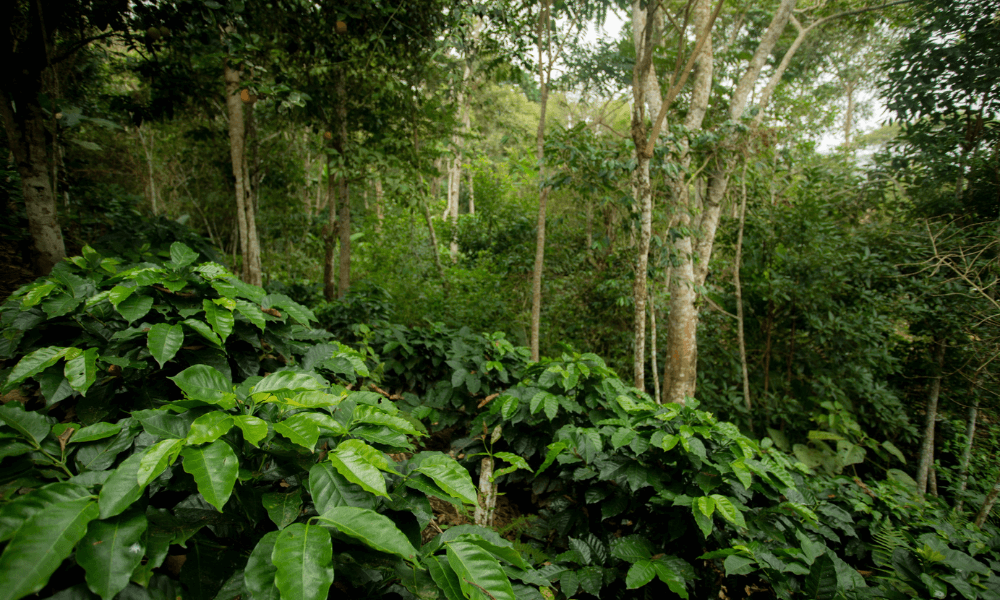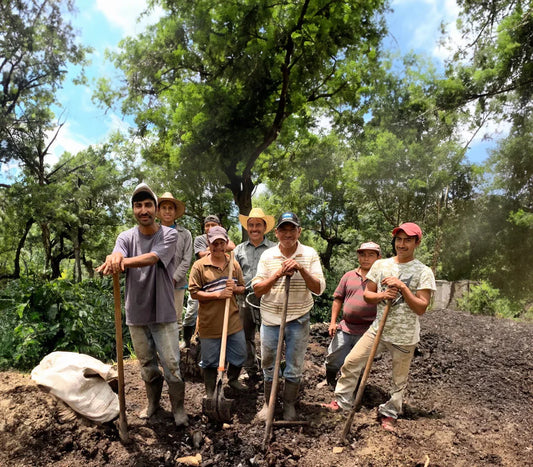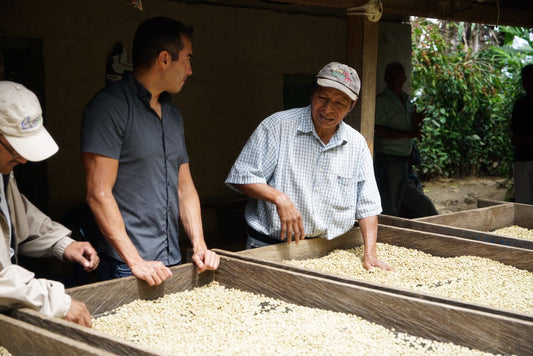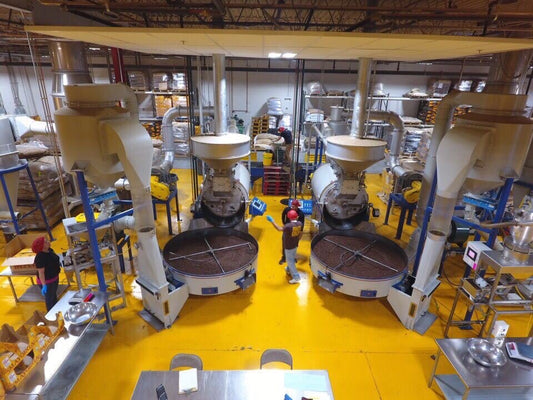
La influencia de las prácticas agrícolas indígenas en la producción moderna de café
Si bien en Mayorga Coffee no dudamos de su aprecio por una excelente taza de café, ¿ha considerado alguna vez las raíces sustentables que se encuentran detrás de su cultivo?
Saltar a:
En comparación con las prácticas modernas, menos sostenibles, las comunidades indígenas de América Central sabían exactamente cómo aprovechar la tierra y devolverle algo a cambio. Poseen la sabiduría ancestral no solo para cuidar la tierra, sino también para cultivar oportunidades para que las comunidades nativas prosperen, forjando un vínculo armonioso con sus antepasados. Desde técnicas ancestrales hasta asociaciones prósperas, exploramos la combinación de tradición e innovación en el mundo de la producción de café en las comunidades indígenas.
Técnicas de cultivo arraigadas en la tradición
Las comunidades agrícolas indígenas han perfeccionado técnicas de cultivo que aprovechan la sabiduría de la naturaleza para mejorar la producción de café. Tomemos como ejemplo el método de cultivo de café a la sombra que practica el pueblo Emberá de Panamá. Al cultivar café bajo el dosel del bosque, imitan el entorno natural, fomentan la biodiversidad y brindan un hábitat vital para las aves. Este enfoque sostenible preserva el delicado equilibrio de los ecosistemas a la vez que produce granos de alta calidad.
El método de cultivo intercalado de los mayas en México demuestra su enfoque holístico. Al plantar café junto con cultivos complementarios como la vainilla o el cacao, crean una relación simbiótica que maximiza la eficiencia del uso de la tierra y mejora la fertilidad del suelo. La Dra. María López, reconocida investigadora agrícola, enfatiza: "Los innovadores sistemas agroforestales de los agricultores indígenas encarnan un conocimiento intrincado de los ecosistemas y ejemplifican una coexistencia armoniosa entre las personas y la naturaleza".

Un legado de cosecha sostenible
Las comunidades indígenas han comprendido desde hace mucho tiempo la importancia de los métodos de cosecha sostenibles, que garantizan la longevidad de la producción de café. El pueblo Kichwa de Ecuador, por ejemplo, utiliza la cosecha selectiva. Recolectando meticulosamente a mano solo las cerezas de café más maduras, priorizan la calidad sobre la cantidad, manteniendo así la integridad del cultivo. Este método no solo garantiza sabores exquisitos, sino que también minimiza el desperdicio y reduce el impacto ambiental de la cosecha. Los agricultores indígenas también practican técnicas tradicionales de fermentación, lo que permite desarrollar sabores matizados.
Juanita García, productora de café de Colombia, comparte que sus antepasados creían que el proceso de fermentación era esencial para revelar el verdadero carácter del grano de café. Al controlar la duración y el método de fermentación, estos agricultores logran perfiles distintivos, admirados por los amantes del café de todo el mundo.

Revitalizar el patrimonio cultural y empoderar a las comunidades
Más allá de las técnicas agrícolas, las prácticas agrícolas indígenas infunden el café moderno
La producción de café tiene un significado cultural y también empodera a las comunidades marginadas. El pueblo mapuche de Chile ha recuperado tierras ancestrales para cultivar café, utilizando el conocimiento tradicional como fuente de orgullo y resiliencia. Al honrar su herencia y revivir las prácticas agrícolas precoloniales, restauran su identidad cultural y fortalecen los vínculos comunitarios. Felipe Torres, un agricultor mapuche de café, explica la importancia de la producción de café y cómo les permite compartir su historia y desafíos al tejer juntos los hilos del pasado y el presente. Su café no solo enriquece a los amantes del café, sino que también promueve la justicia social al brindar oportunidades económicas y combatir la desigualdad.
Mientras saboreamos cada sorbo de nuestra taza de café favorita, recordemos a los agricultores indígenas que han dado forma a su esencia. Sus técnicas de cultivo sostenible, sus meticulosas prácticas de cosecha y su resiliencia cultural nos inspiran a celebrar la diversidad, cuidar nuestro planeta y preservar la sabiduría ancestral que impregna el arte de preparar café. La influencia de las prácticas agrícolas indígenas en la producción moderna de café es solo un ejemplo de cómo las tradiciones siguen perseverando e inspiran el camino moderno en América Latina.


